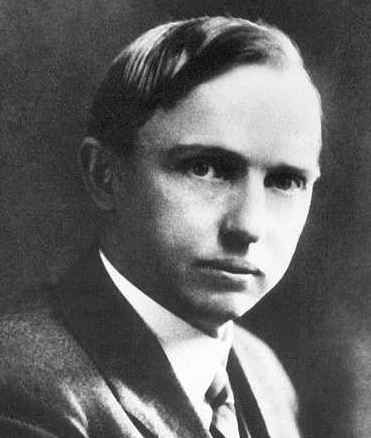New astronomical and biochemical revelations establish firmly our belief in the cosmos-wide occurrence of life and have altered our view of the destiny of our species— and its possibilities. Because we can think we tend to think we are the dominant creatures in the universe, but we should not take ourselves too seriously. Other more intelligent life may exist.
We are doing pretty well with the eyes and other sense organs that nature has provided us to deal with the practical problems of existence. But they ill equip us for profound thought and for researches into the nature and operations of the universe. Other means may exist.
In our complex
universe, one simple requirement stands out: we must link ourselves
with all the other phenomena that participate in life. We must go
beyond life and associate ourselves continually and insistently
with the solid rocks of the earth, the gaseous winds of the sky.
We can grow through understanding of the universe. The cosmic immensities,
whether of space and time or of outlook and concept, should not
dismay us. If care is taken to oppose static conformity, we shall
continue to evolve.
We can consciously speed up our development. What we should strive for is not growth in size, or strength, or longevity, but growth primarily in the qualities that we associate with mind, a development that includes those fine indefinables—heart and spirit. And therein lies the nucleus of our cosmic ethic.
The new discoveries and developments make obsolete many of the earlier world-views and contribute to the unfolding of a magnificent universe; to be a participant therein is also magnificent.
Confessing to Optimism
It seems proper to conclude this discussion of man’s response to the expanding universe on a note of humility and hope, if not of high confidence. Certainly, we should be humble about our trivial progress toward understanding the total of the external world. But, going further, we can construct new worlds of ideas and beauty.


